Do Cardinals Eat Worms?
Although cardinals primarily eat seeds, many bird watchers question whether seeds are their only food source or not. Some people even think these birds eat insects like worms.
What do you think? Do cardinals eat worms? Yes, cardinals eat worms and other small insects to fulfill their need for protein, fat, vitamins, and minerals. Usually, they prefer devouring seeds over worms; they won’t restrict themselves from eating worms, especially when they fail to find seeds.
That said, this blog post is all about what worm types varied cardinals eat regularly. So, without delaying more time, let’s get started.
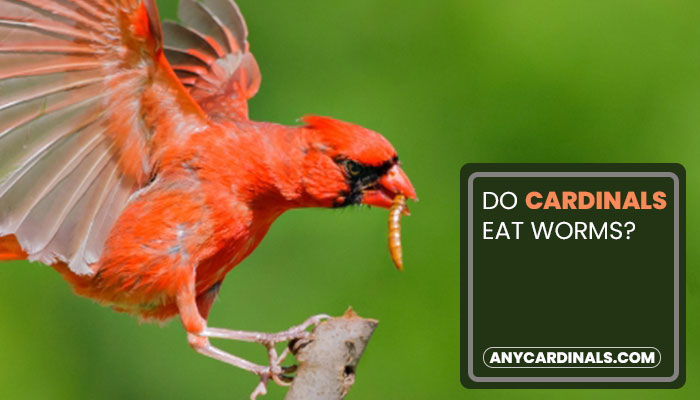
Read related articles about cardinal food and diet:
Do Cardinals Eat Mealworms?
Yes, cardinals eat mealworms, but this food doesn’t fall into their favorite food category. As you know, cardinals prefer munching on sunflower seeds and safflower seeds.
They don’t enjoy eating foods other than those mentioned above. But many birders think cardinals love gobbling those little black and red striped mealworms.
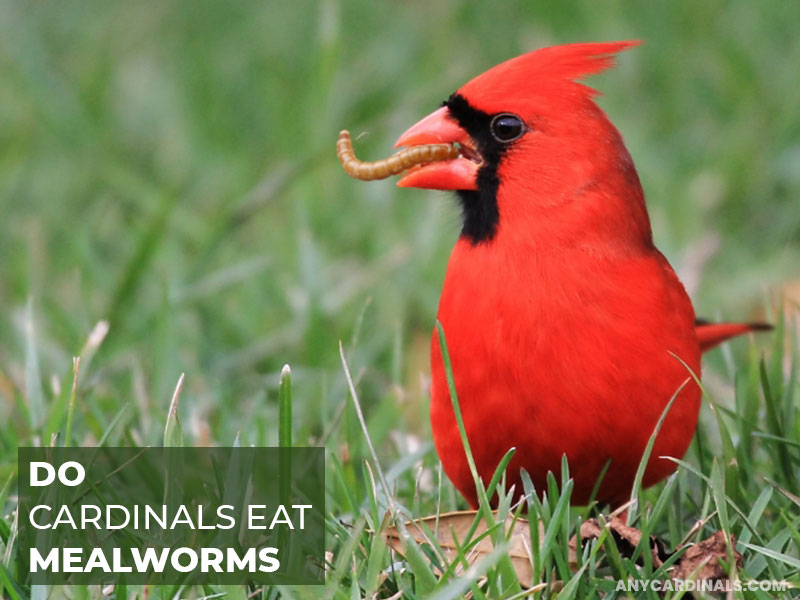
Cardinals don’t forage for such food; they will only eat mealworms if they find them in their environment. However, mealworms play a significant role in cardinal growth.
These insects are an excellent source of protein, fat, vitamins, minerals, and fiber. Hence, by consuming mealworms, cardinals receive adequate protein and amino acids they need to thrive and live healthily.
Do Cardinals Eat Tomato Worms?
Indeed, cardinals eat tomato worms. Usually, they search for these insects in the tomato gardens. So, if you have a tomato garden and want to get rid of the tomato hornworms, you can invite cardinals into your garden.
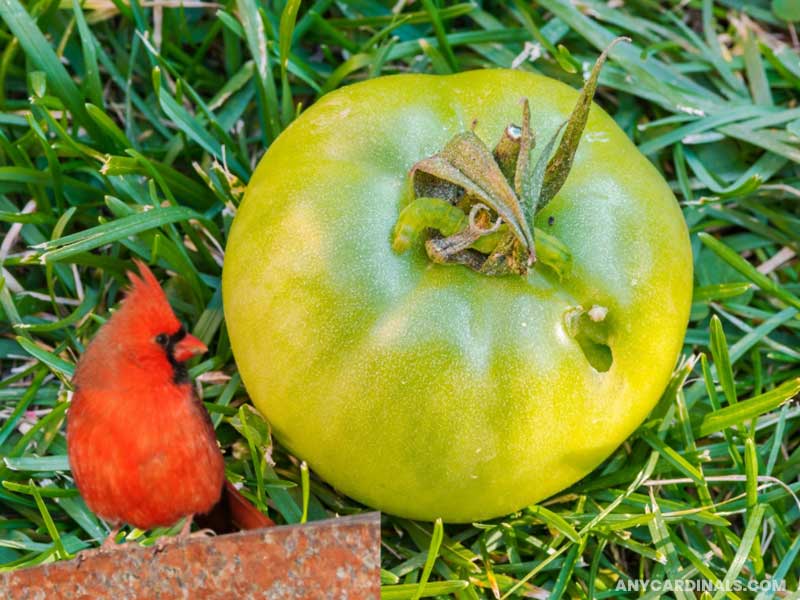
These birds will eat nearly all the garden’s tomato worms and protect your plants. In case you don’t know how to attract cardinals to your garden, it’s simple, just hang a bird feeder filled with sunflower seeds in your garden.
That’s it; whenever cardinals spot a feeder, they will visit your garden and eat seeds alongside eating those tomato worms.
Which Species of Cardinal Eats Worms?
Generally, most cardinal species are inclusive eaters; they will eat nearly everything edible to birds. So, whether it’s a grain of seed or a piece of worm, cardinals will consume it.
However, cardinals don’t eat worms frequently as they don’t easily find this food near their habitats. Most birds will go after the seeds if they are left with seeds and worms to choose from to eat.
Do Baby cardinals Eat Worms?
Baby cardinals can’t digest hard foods; hence, parent cardinals feed their babies undigested insects and soft berries. For baby birdies, it takes around one or two weeks to eat insects and worms on their own.
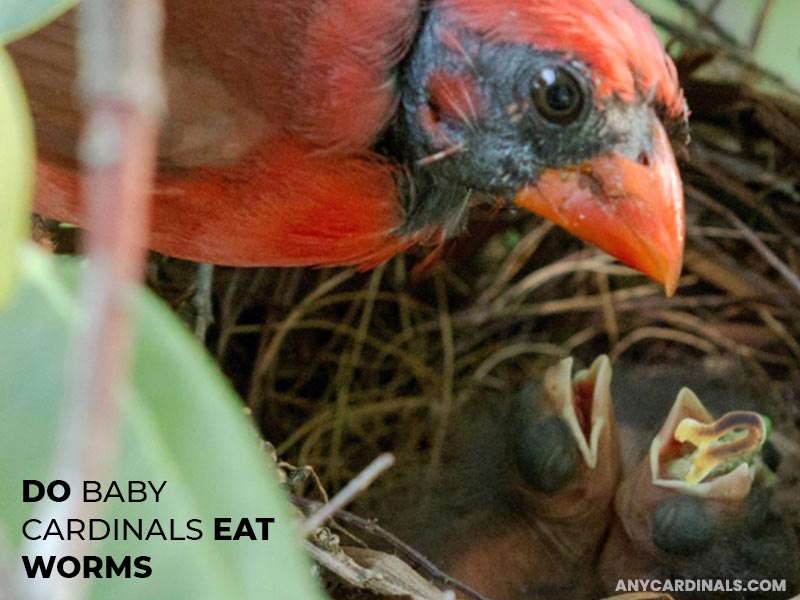
But even after that period, some baby cardinals will still ask for food from their parents until they can fully find food on their own. That’s why you don’t usually spot baby cardinals in the wild foraging for food.
What Food Do Baby Cardinals Eat?
As you know, baby cardinals can’t digest hard food; they eat soft insects like worms, caterpillars, larvae and soft berries, and other regurgitated foods.
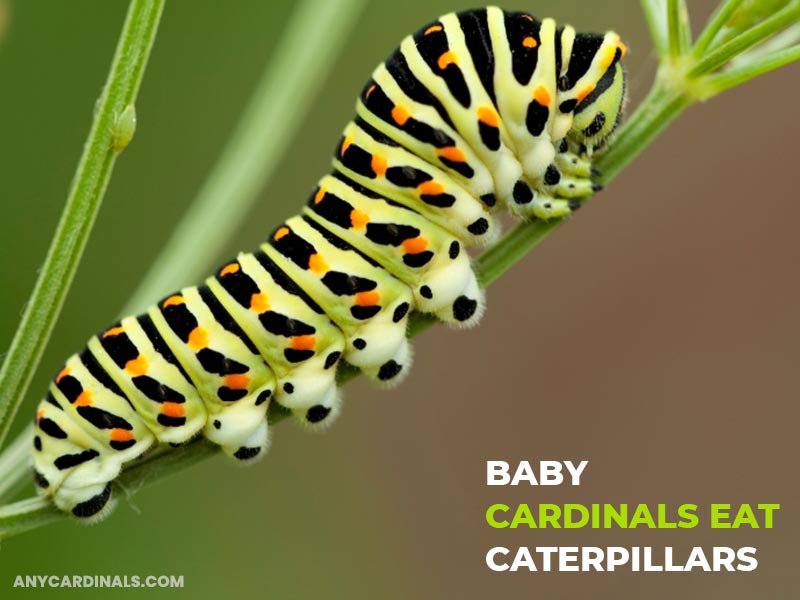
Initially, mother cardinals tend to regurgitate into the baby cardinal’s mouth to let them have food. These babies will be fed in this method until they grow up.
Once they age, their mothers will introduce them to seeds and other plant-based food.
What Do Cardinals Eat In The Wild?
Cardinals enjoy gobbling a wide range of small fruits, berries, seeds, nuts, insects, arthropods, invertebrates, etc. In a word, they are omnivorous.
Mostly, cardinals search for seeds in the wild; their beaks are specially designed to pick and break seeds. That’s why they love this food so much.
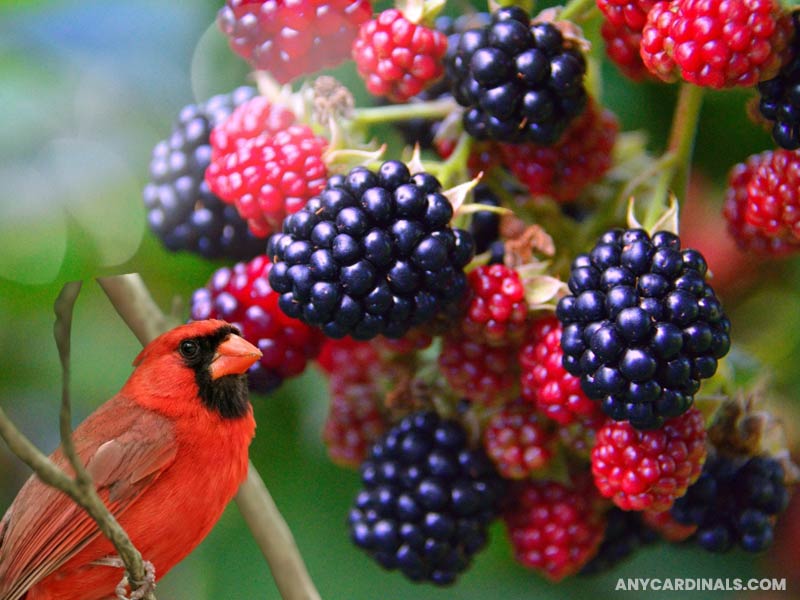
But when they fail to find seeds, they will look for other food sources. Cardinals’ feeding habits vary based on breeding and non-breeding seasons.
During the non-breeding season, cardinals gorge on fruits and seeds, but when it’s the breeding time, they prefer consuming insects because they need more protein and fat than usual.
Final Words:
So, now you know whether cardinals eat worms or not. They are omnivorous; you can call them foodies as well. These enigmatic bird species can consume varied foods. Hence, attracting them to yards is an effortless job.
Just by serving seeds, you can allure these stunning birds. That’s all for this article; we hope you have learned something new today and expect you will stay connected with us on Facebook, Twitter and Pinterest for more information on cardinals.

